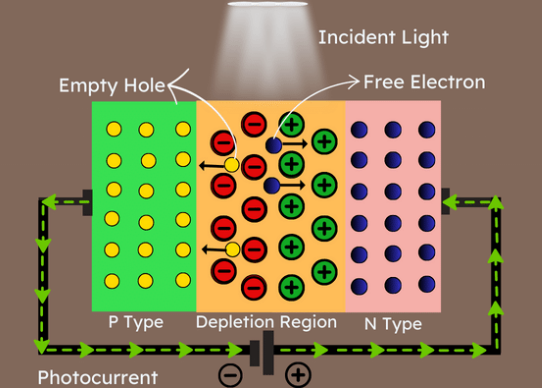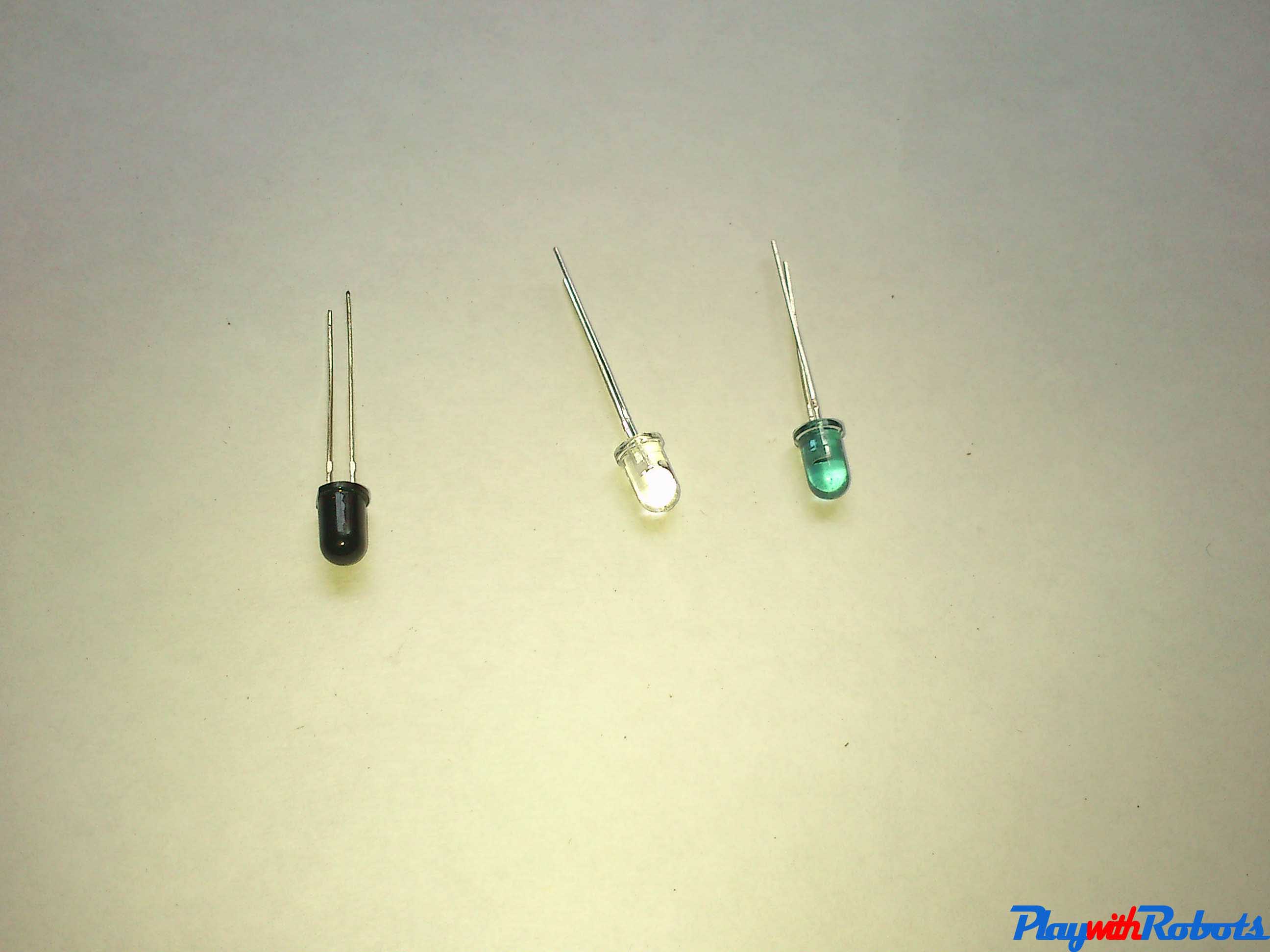Understanding Photodiodes Working Principles and Applications Circuit Diagram In other words, a photodiode senses light and produces current as output. A photodiode is also called a photo sensor, photodetector, or light detector. Your First Photodiode Circuit - a Fire Sensor. You can build your first photodiode circuit using just a few components on a breadboard. This circuit will sense fire and raise an alarm.

In most applications, the photodiode operates in photoconductive mode with a reverse bias (Figure 2). Figure 2: The reverse biased photodiode produces a current proportional to light intensity due to the creation of electron-hole pairs in the depletion region. The blue-filled circles represent electrons and the white circles signify the holes.

How Photodiodes Work and Their Applications Circuit Diagram
When a photo diode is used as a light sensor, for Germanium type diodes, the dark current is around 10 µA and for Silicon type diodes, it is 1 µA. Dark current is the current when the intensity of the light is 0 Lux. Light Sensing using Photodiode. Photodiode may be operated and biased in two modes: photo voltaic mode and photoconductive mode.

Photodiodes are one of the popular components used to sense incident light in electronic circuits. It has wide range of applications like Remote control, alarms, sensory applications and so on. This article explains What is a Photodiode, How it works and how to use them in a circuit. Working of Photodiode :

Photodiode Light Detector With Arduino Guide Circuit Diagram
Some examples of specific applications of photodiodes are: Alarm circuit using photodiode: A photodiode can be used to detect an intrusion by breaking a beam of light that falls on it from a light source. When there is no obstruction in front of the photodiode, a reverse current flow through it due to the incident light.
